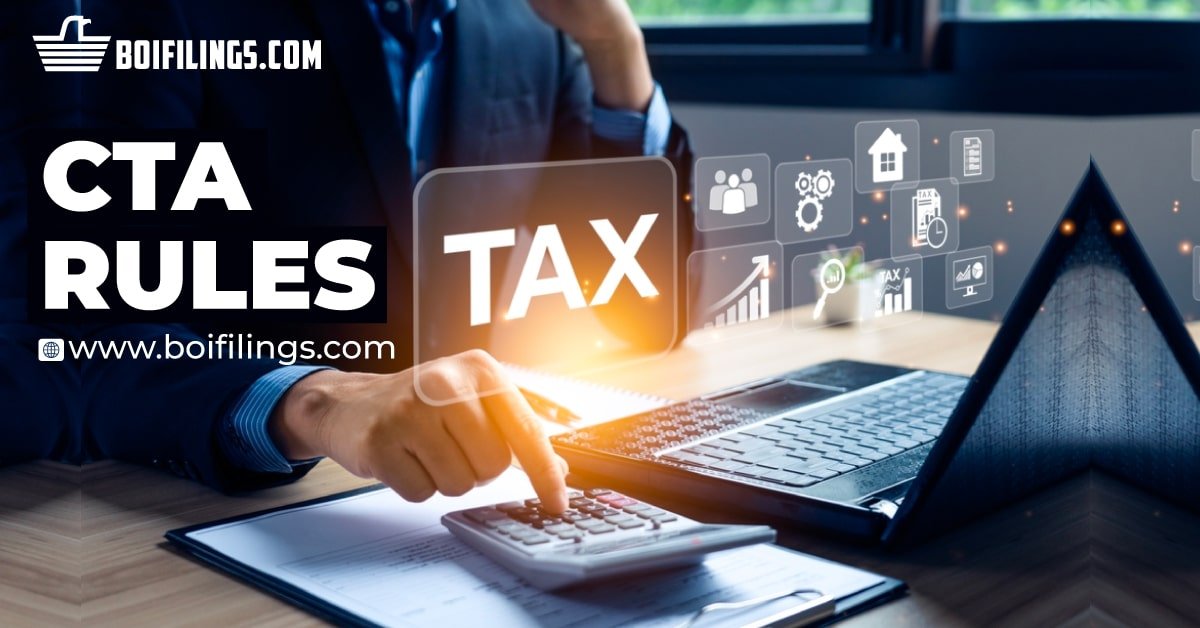What is BOSS?
The Beneficial Ownership Secure System (BOSS) is a regulatory framework designed to enhance transparency in the ownership structure of businesses, especially those involved in financial transactions.

In a dynamic and evolving business landscape, being ahead of regulatory requirements is not just recommended, it's imperative. One of the newest compliance measures, particularly for those operating in the financial sector, is the Beneficial Ownership Secure System, often referred to as BOSS. For those unfamiliar with this system, this article will provide a clear and concise introduction, highlighting its significance for businesses across the United States.
The Beneficial Ownership Secure System (BOSS) is a regulatory framework designed to enhance transparency in the ownership structure of businesses, especially those involved in financial transactions.
This system seeks to unmask the identities of individuals who might be benefiting, directly or indirectly, from a company, but whose involvement might remain hidden behind a veil of corporate entities or complex ownership structures. CTA Corporate Transparency Act. By requiring companies to report their beneficial owners, the BOSS system aims to reduce illicit activities like money laundering, tax evasion, and other forms of financial misconduct.
If the ethical implications of ensuring CTA rules transparency aren’t convincing enough, the legal ramifications should be. The U.S. government has been increasingly vigilant in ensuring that companies comply with the BOSS mandates. FATF - Financial Action Task Force Non-compliance does not just tarnish a company's reputation but can also result in severe fines and penalties.
Moreover, the global business environment is increasingly valuing transparency and ethical operation. Staying ahead in compliance measures like BOSS can provide businesses a competitive edge, not just in terms of avoiding penalties but also by enhancing their reputation among stakeholders, partners, and customers.
Although BOSS primarily targets businesses within the financial sector, such as banks, brokerages, and specific investment entities, its impact resonates throughout a wide spectrum of industries. Corporate Transparency Act 2023 Any business that deals with these financial entities, either by necessity or choice, should be aware of the BOSS requirements and how they impact the business landscape.
For instance, if you're a manufacturing business seeking loans or credit from a financial institution, that institution, adhering to the BOSS compliance, may request information on your beneficial owners. Financial Action Task Force . Therefore, even if you're not directly mandated to report under BOSS, being prepared can streamline your interactions with financial entities and ensure smoother business operations.
While the introduction and understanding of BOSS may seem straightforward, the actual process of compliance can be intricate. This is where we, at BOI Filings, come into the picture. Know What is AML. Our seasoned professionals have been assisting businesses across the U.S. in understanding and complying with BOSS requirements.
Our team stays updated with the evolving regulatory landscape, helping to make sure that your business gets the most current and accurate guidance. Anti-money laundering compliance. By working with us, you leverage our expertise to handle the complexities of BOSS, allowing you to focus on what you do best: running your business.
At BOI Filings, we’re standing by to file your documents with the government. With our assistance, you can navigate the intricacies of the BOSS system more effectively. While we cannot ensure or guarantee results, our commitment to excellence means we strive to provide the best service possible to our clients. This way, your business can stay in compliance and potentially avoid the pitfalls of non-compliance.
Navigating complex regulatory frameworks requires not just understanding but also efficient information dissemination. Beneficial Owner for an LLC. At BOI Filings, we recognize the importance of concise and clear documentation. To assist businesses in their compliance journey, we offer a comprehensive fact sheet on the Beneficial Ownership Secure System (BOSS).
The purpose of this fact sheet is to serve as a convenient reference, offering essential information in a concise format for quick access. Covering key definitions, requirements, and implications, our fact sheet can serve as a handy tool for businesses looking to familiarize themselves with BOSS without getting bogged down in excessive details.
In the context of BOSS, reporting companies are those entities that are required to submit specific information about their beneficial owners. While the primary emphasis is on the financial sector, the net is cast wider. want to know about Beneficial Ownership Information reporting requirements. Reporting companies, as defined by BOSS, include corporations, limited liability companies (LLCs), and other similar entities that are either formed under the state law of any U.S. state or foreign entities registered to do business in the U.S.
However, it's crucial to note that not all companies fall under this category. Certain entities, such as publicly traded companies, are generally exempted due to their existing transparency mandates under other regulations.
What are Beneficial Owners?, under the BOSS framework, these refer to individuals who, directly or indirectly, own or control a significant interest in a reporting company. It's not just about who holds the shares but about who has significant control or influence over the company's activities. Beneficial Ownership Report Typically, beneficial ownership is defined by a certain percentage of ownership or voting rights, often set at a threshold of 25%. However, the specifics might vary based on the nature of the company and its operating jurisdiction.
Furthermore, it's vital to understand that beneficial owners are not always apparent from the company's structure. What is an Entity Beneficial Owner for an LLC? They might not be direct shareholders but could exert influence through contractual arrangements, familial ties, or other indirect means.
The Financial Crimes Enforcement Network (FinCEN), a bureau within the U.S. Department of the Treasury, holds a crucial responsibility in the supervision and enforcement of the BOSS framework. Their principal objective revolves around countering domestic and international money laundering, terrorist financing, and various other financial illicit activities.
In essence, FinCEN’s oversight ensures that the BOSS framework achieves its primary objective: promoting transparency and curbing financial misconduct.
As the business environment becomes more digital and interconnected, leveraging technology becomes not just an advantage but a necessity. Many businesses may find the prospect of maintaining updated records of beneficial ownership and ensuring timely reporting to be daunting. Customer Due Diligence for Business Owners. However, with the right technological tools and systems in place, this process can be streamlined and made more manageable.
For instance, several software solutions in the market assist companies in managing their BOSS compliance requirements. PIL Personally Identifiable Information. These tools can help businesses automate the process of data collection, verification, and submission. They also offer features like real-time updates, reminders for periodic reporting and analytics to identify potential areas of risk or non-compliance.
At BOI Filings, we also recognize the importance of technology in focusing on effective compliance. What is the FATF report? Our systems can integrate seamlessly with many of these software solutions, providing an end-to-end service that covers not just advisory but also operational aspects of BOSS compliance.
While systems and processes form the backbone of compliance, the human element cannot be ignored. Often, non-compliance arises not from a deliberate oversight but from a lack of awareness. Beneficial Ownership Information. It's imperative that all stakeholders in a company, from the board members to the operational teams, understand the importance of BOSS and the implications of non-compliance.
We, at BOI Filings, emphasize the importance of regular training and awareness sessions for our clients. What is Ultimate Beneficial Ownership? These sessions are tailored to the specific needs and characteristics of each business, producing content that is relevant and actionable. By fostering a culture of awareness and proactive compliance, businesses can reduce the risk of inadvertent lapses.
The regulatory landscape is not static. As financial systems evolve, so do the mechanisms to ensure transparency and prevent misconduct. It's essential for businesses to not just respond to current requirements but to anticipate future changes. This proactive approach ensures that companies are not caught off-guard when new regulations Anti Money Laundering are introduced or when existing ones are modified.
BOI Filings prides itself on its forward-looking approach. Our team of experts can constantly monitor developments in the regulatory space, both domestically and internationally. By partnering with us, businesses can be confident that they are not just compliant today with UBO but are also prepared for the challenges of tomorrow.
BOSS, like many regulatory frameworks, brings with it challenges but also opportunities. want to know What is the NSBA. Companies that approach BOSS compliance with a proactive and informed mindset stand to gain not just in terms of legal compliance but also in reputational benefits. In a world that increasingly values transparency and ethical business practices, understanding and adhering to BOSS can be a significant differentiator with the Boi reports.
And as your business navigates this journey, remember that you are not alone. With the right partners, resources, and tools, BOSS compliance can become an integral and seamless part of your business operations. At boi filings we remain committed to supporting businesses across the United States in this endeavor, providing expertise, resources, and a guiding hand every step of the way for the boi filing 2024.
In the evolving landscape of business regulations, staying compliant is more than a mere legal formality; it's now a cornerstone of ethical and responsible entrepreneurship to file a required BOI.
Read More
Let's go over CTA code of ethics rules that go into effect on January 1, 2024 (Corporate Transparency Act) for US businesses via BOI filing (Beneficial Ownership Information) with FinCEN: Learn here CTAs and NFA regulations.
Read More